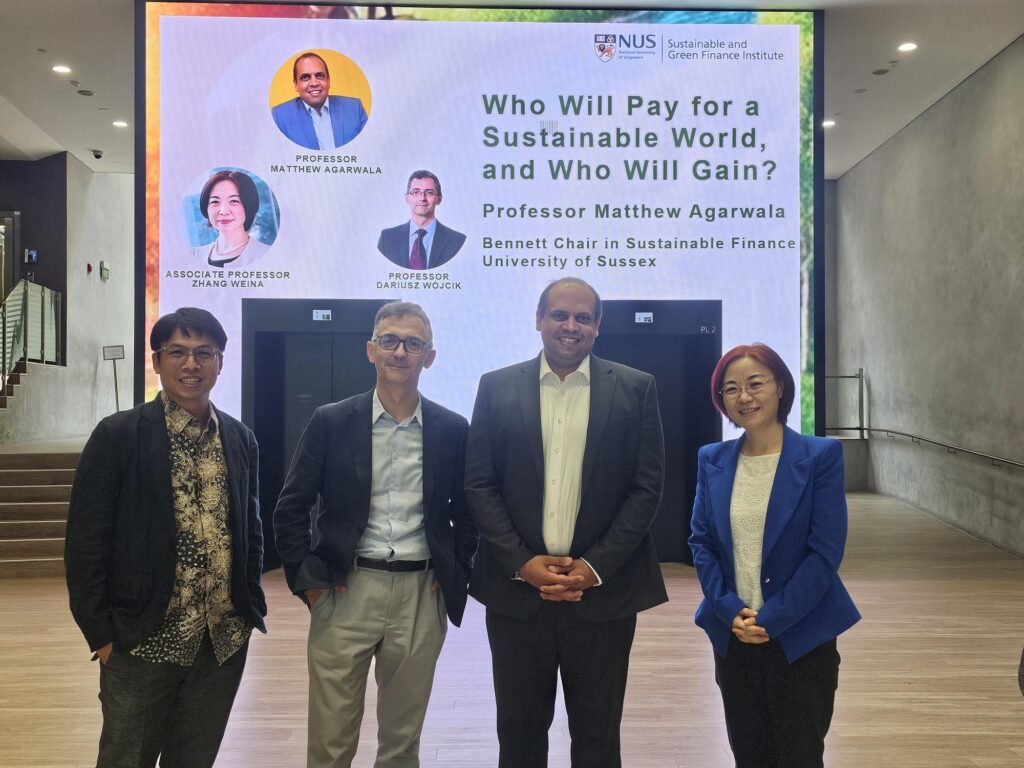
Who Will Pay for a Sustainable World, and Who Will Gain?
16 Apr 2025
We were honoured to welcome Professor Matthew Agarwala, Bennett Professor of Sustainable Finance at Bennett Institute for Innovation and Policy Acceleration, University of Sussex, for an insightful lecture on nature’s worth and its critical role in shaping the future of finance and economic development.
Professor Agarwala opened with a compelling proposition: the world needs a new economic model—one that moves beyond Gross Domestic Product (GDP) to account for the full spectrum of national and global wealth. This means measuring not only physical and financial capital, but also natural, human, knowledge, social, and institutional capital. While global poverty has declined and life expectancy has risen over the past two centuries, these gains have come at a steep environmental cost: over 1.5 trillion tons of greenhouse gas emissions and a significant loss in biodiversity. Without integrating environmental science into economic and financial decision-making, we risk mispricing both assets and risks.
Professor Agarwala highlighted how green finance must be grounded in environmental science to be meaningful. Sovereign debt—through which nations finance development—is becoming increasingly vulnerable to climate change and biodiversity loss. This is particularly acute for developing nations that already face higher borrowing costs. To address this, Professor Agarwala and his research team developed a novel, data-driven framework using random forest classification to integrate macroeconomic and credit ratings data with environmental stressors. The aim is to generate environmentally adjusted credit ratings that better reflect ecological realities and financial risks.
The session continued with a thought-provoking dialogue featuring Professor Dariusz Wojcik and Associate Professor Zhang Weina, who engaged with the audience questions. One central theme was the historical exclusion of natural, human, and social capital from mainstream economic models. These were not constraints in the past—but they are today. The panel also explored the relevance of the post-growth movement, not as a rejection of growth, but as a call to rethink what we grow. Beyond GDP, we must build long-term, inclusive wealth. A critical gap identified was in financing small-scale, high-impact projects—particularly in Asia—where many initiatives deliver significant social and environmental benefits but lack access to large-scale capital. We need better mechanisms to assess, value, and fund these impactful solutions.
